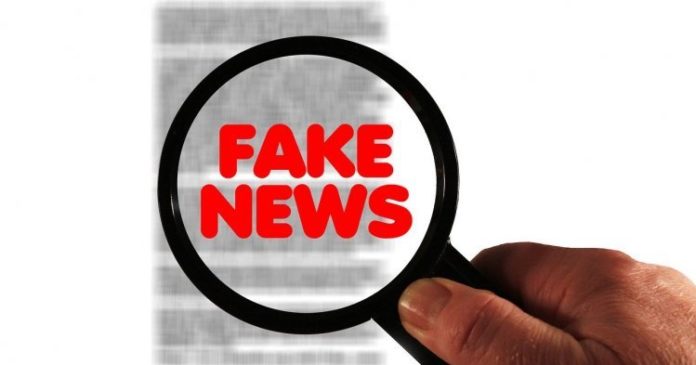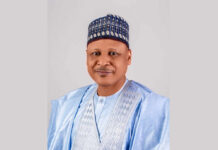By Sampson Ikemitang
The search for credible information from the avalanche of fake news and disinformation churned out daily by the operators of the social media to the public domain has remained a daunting challenge to the media profession in the recent past. As a result, there is an increasing demand for public information managers to up their skills in the management and dissemination of public information, in order to hold down the spiralling effect of the new media.
In the words of Malcolm X: “The media is the most powerful entity on earth. They have the power to make the innocent guilty and to make the guilty innocent, and that’s the power.”
Against this backdrop, some social media practitioners using such platforms like Facebook, Twitter, Instagram, and YouTube, have continued to propagate fake news to their teeming audience and are still in the business of misinformation. Perhaps, their efforts have been to heat up the polity and ultimately cause disaffection among the Nigerian populace in particular, and the world at large. It is a known fact that most bloggers and online publishers do not have the requisite training in the management of public information; the practice which is making journalism in recent times an all-comers’ affairs.
So, to begin with, what is fake news? Fake news is a term that has come to mean different things to different people. According to the University of Michigan Online Library, “Fake news is defined as those news stories that are false: the story itself is fabricated with no verifiable facts, sources or quotes. Sometimes, these stories may be propaganda that is intentionally designed to mislead the reader or may be designed as a clickbait written for economic incentives (the writer profits on the number of people who click on the story).”
Clearly, “fake news” exists within a larger ecosystem of ‘mis’ and disinformation. By misinformation, we simply refer to a false or inaccurate information that is mistakenly or inadvertently created or spread not intending to deceive. On the other hand, disinformation is a false information that is deliberately created and spread, in order to influence public opinion or obscure the truth.
In recent years, fake news stories have proliferated via social media, in part because they are so easily and quickly shared online. For instance, the claim that President Buhari has a cloned body from the cells of a man called “Jubril,” by online media has been described as a “huge joke” and generally dismissed as fake news. This bogus claim has since been jettisoned by both the media and citizens alike.
Again, not too long ago, the social media was awashed with the purported marriage between President Muhammadu Buhari and his Minister of Humanitarian Affairs, Disaster Management and Social Development, Sadiya Umar Farouq, who, at the time, was in New York, United States, to attend a United Nations (UN) Campaign Against Poverty. Like wildfire, the rumour spread and became almost unquenchable.
Contrary to the social media claims, in a verifiable twitter handle @ Sadiya _Farouq, the Minister reportedly wrote: “There have been several speculations in the media regarding marriage between myself and Baba Buhari. I will like to clarify this, that I and Baba Buhari have been old friends and Her Excellency, Aisha, is my good friend and sister. I will like to maintain this good relationship. Based on this, she said, “Dear Nigerians, please kindly ignore all rumours, as this is not true.”
Although politicians in their characteristic manner have been known to devise Machiavellian tactics in creating negative stories in a bid to score cheap political points, the social media has availed itself as a veritable platform for such ambitious politicians to realise their premeditated ends. To change the narrative, therefore, it is incumbent on the traditional media to dig deep into such stories flying in the social media and unravel the truth, in order to present the people with the right information in line with its constitutional mandate.
Just as it cannot be gainsaid that the social media has largely become the purveyor of fake news, this practice can be ascribed to the un-censorship nature of its media outlets. Videos and other messages are uploaded with little or no regard to the etiquettes of the journalism profession. This is because gate keeping role is non-existent.
Underscoring the importance of the media to national development, the 1999 Constitution, as amended, provided in Section 22 that “The Press, Radio, Television and other agencies of the mass media shall at all times be free to uphold the fundamental objectives contained in this Chapter and uphold the responsibility and accountability of the Government to the people.”
Basically speaking, the media performs three roles of informing, educating and entertaining. These are the conventional social functions which the media renders to the public, and it can also be applicable to the pursuit of national development. Through the education, information and entertainment role of the media, members of the society and its leadership are made to be aware of the need to undertake certain processes in national development.
The place of the media in national development can be seen in its capacity to manipulate, sensitise and mobilise the people through effective information dissemination with a view to achieving development. For instance, the development role by the Nigerian media is the continuous sensitisation of the citizenry against vote buying, electoral apathy and exposure of other ingenious antics deployed by politicians towards winning elections.
Development as we may know refers to a change process geared at improving or making better the life and environment of man. In other words, it involves the creation of opportunities for the realisation of human potentialities. Where the media comes into the development process is what can be termed development communication. It is the type of communication which is consciously packaged by the sender such that the message content or the information sent out could persuade, encourage or convince the receiver or target audience to adopt an attitude and participate in actualising a development goal.
In the same vein, where fake news and hate speech are oxygenated, disseminated and allowed to rule the airwaves, they have the capacity to exploit the nation’s fault lines and trigger a national brushfire. The fact is that no responsible government the world over will sit by and watch the nation being driven to anarchy by unpatriotic elements in the name of playing politics. It is instructive to say we must first have a country before we can practice journalism.
With the recent surge in social media activities and its tenacity as a rumour mill, public information managers must battle earnestly for the soul of journalism practice in the country. They must at all times counter disinformation and fill in the gap with credible information. This is because we live in an era where news is delivered instantly and gossip travels even faster. While the people reserve the “right to know,” the media must exercise caution and restraint in their reportage as well as avoid actions capable of truncating the nation’s evolving democracy.
Send SMS only (07068133747)





